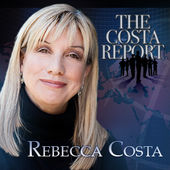When it comes to political campaigns, the past used to be the best predictor of the future. But no more. Speaking on The Costa Report, political history buff and host of MSNBC’s Meet the Press Daily, Steve Kornacki, summed up the 2016 Presidential race, “New rules for politics are being written in real time right now. And finding out what those rules are is invigorating!”
So what’s different about this year?
As it stands today, a billionaire businessman who has never held elected office, who has offended women, Hispanics, and the Pope, offered no program specifics, and spent far fewer campaign dollars than his competitors, has managed to maintain a double-digit lead for ten months â causing every pundit and journalist to begrudgingly admit they were wrong about Trump. They expected his run to be as short-lived as Giuliani or Gingrich. And if the old rules still applied, it would have been. But as Trump moved from state to state – violating every tenet that defines “political correctness” – his popularity grew. The working class â once a Democratic stronghold – began switching teams. As did soccer moms concerned with security, young people worried about job opportunities, and retirees who face entitlement cuts when the economy falters. Kornacki observed, “Trump has been leading, on average, in national polls since July now. None of the candidates in 2012 – who were running against Romney – ever led for more than 3 weeks at a time …we’ve clearly established that he (Trump) is something very different in Republican politics, in American politics.”   Managing editor for the New York Times website, David Leonhardt agrees. Leonhardt recently recanted his skepticism about Trump’s effectiveness, “We were fooled by history. Neither Mr. Cruz nor Mr. Trump resembles any candidate who has won a major party presidential nomination in the last 50 years. They have scant support among governors, senators and other leaders in his party.”
Which brings us to the second reason this election is different from any other. Endorsements have historically been one of the best predictors of who wins the primaries. But in 2016 endorsements haven’t packed quite the same punch. Currently, third place GOP contender, Marco Rubio, leads the GOP race in political endorsements, rounding out the number of Senators and Representatives that have pledged their support with a recent stamp of approval from South Carolina Governor, Nikki Haley. Along with a thumbs up from popular Evangelical leader, Bob Vander Plaats, second place contender, Ted Cruz, has garnered the support of (S.C.) Representative Mark Sanford and other GOP influencers. Yet none of these endorsements have significantly closed the gap with front-leader, Trump. Though Trump hasn’t secured a single major political endorsement outside of former Vice Presidential candidate, Sarah Palin, this year establishment support isn’t translating into voter support.
Meanwhile, the Democrats are also struggling with an entirely new ball game. Whereas the party’s popular vote used to parallel their super delegate vote, in 2016 these may part company. If the current trend continues, Bernie Sanders may be the voters’ choice, but Clinton – who has already secured 384 super delegates – may take the prize. Sanders is lagging behind with only 44 super delegates.
Adding more controversy to the mix, polls suggest that Sanders voters won’t support an establishment candidate – Clinton or otherwise. According to Kornacki, “The democratic blue collar white voters are siding strongly with Bernie Sanders over Hillary Clinton⦠If Clinton is the nominee, these voters might be up for grabs.” Translation: if Clinton is the nominee, Sanders supporters may turn to the only non-establishment candidate left standing – Trump! “There were all sorts of rules of presidential campaigns that the political scientists of the world thought they had come up with that made all these campaigns almost preordained in terms of the outcomes,” said Kornacki. “Those rules are blowing up right in front of us in this campaign.”
But it’s not only the public’s passion for insurgent candidates that makes the 2016 race so interesting. The rule of thumb used to be that the candidate who raised the most campaign money had a clear advantage, but this is also proving to be untrue. Washington Bureau Chief for The Wall Street Journal, Gerald F. Seib makes the point, “The accepted wisdom headed into the 2016 cycle was that the combination of wide-open races and looser campaign-finance laws would make the race more expensive than everâand that, by extension, whoever had the most money would have a big advantage. Not so. The most well-heeled Republican candidate, Mr. Bush, has slowly but surely faded. Wisconsin Gov. Scott Walker, backed by a well-stocked super PACâone of the unregulated campaign organizations sucking up big donationsâwas gone before the first frost.”
From the surprise success of non-establishment candidates to changes in the way endorsements and campaign funds influence elections, the algorithms that strategists, party leaders, and pundits, have relied on are being rewritten in 2016. A Presidential election like no other in American history is underway. And win, lose or draw, Trump and Sanders have left an indelible mark on how candidates will campaign in the future.






